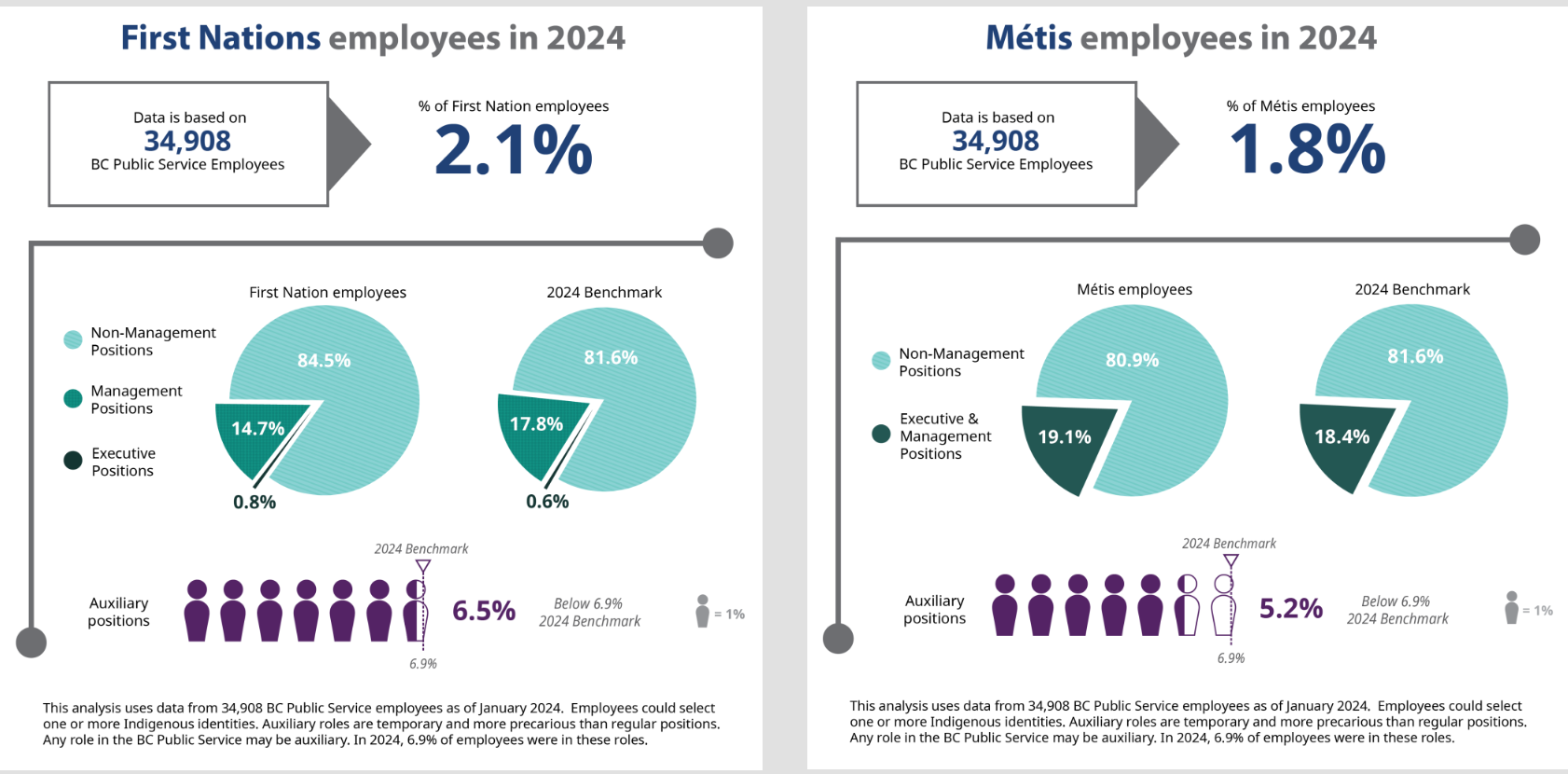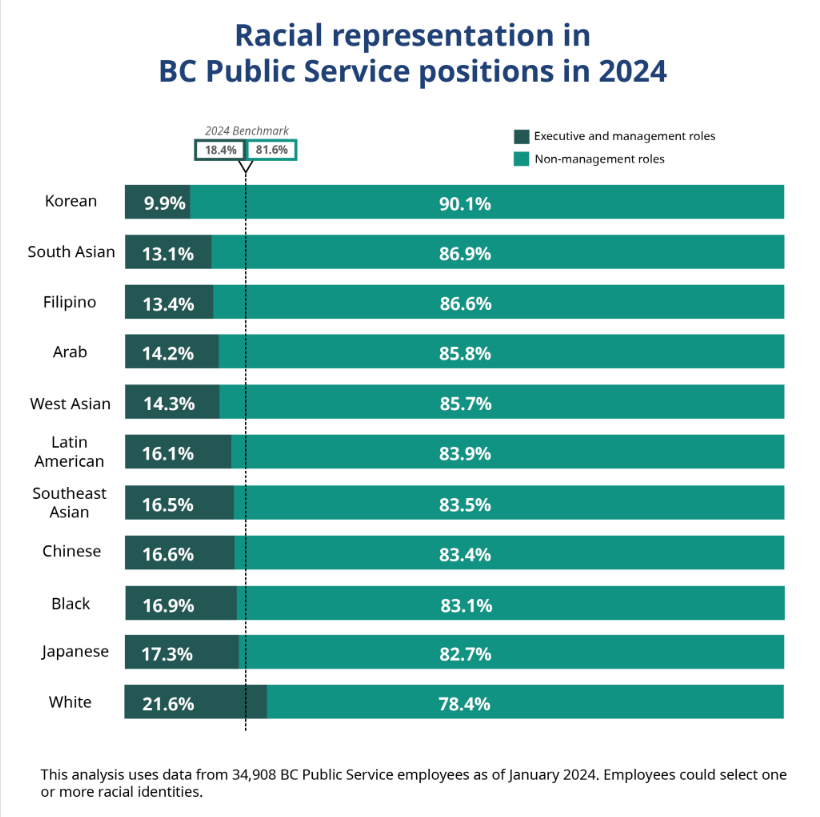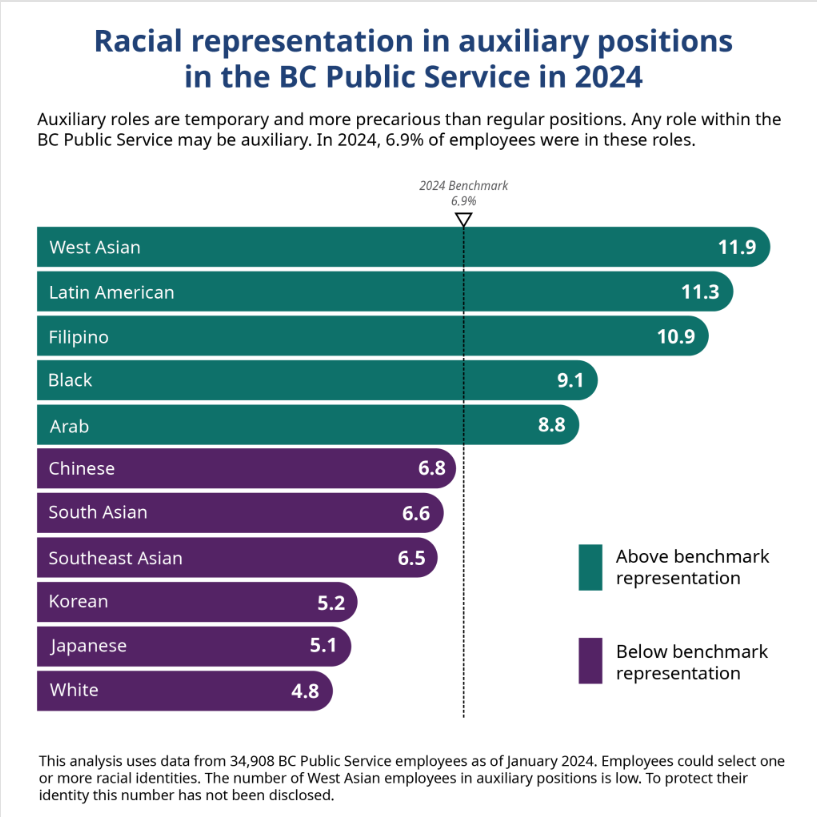
'We are steering the B.C. government to take a deeper dive into health, education and justice, yet we also expect these will trigger an all-of-government approach'

Racism remains a significant issue within the British Columbia Public Service, according to a new report.
"With the release of updated research priorities, we are steering the B.C. government to take a deeper dive into health, education and justice, yet we also expect these will trigger an all-of-government approach, as we know inequities remain in many other areas," says June Francis, chair of the Anti-Racism Data Committee.
"We trust these data and the research priorities will catalyze the B.C. government to take urgent and intentional actions to address the inequities that are being made transparent, and to focus more research in priority areas to deliver real and lasting change for the many people in British Columbia who face racism and discrimination each and every day. This new release of research findings increases the Province’s understanding of what Indigenous and racialized people have been saying for many years – government programs are not serving people equitably."
As of 2024, only about two out of every 100 public service workers in the province identify as First Nations or Métis, according to data from B.C.’s Anti-Racism Data Committee.

The report shows that while 21.6% of public servants identify as White, representation among other racial and ethnic groups remains much lower.

Additionally, racialized employees are far more likely to be in temporary positions than their White counterparts—with some more than twice as likely to hold auxiliary roles.

Women (36%) are less likely than men (42%) to seek more responsibility and a promotion at their company, according to a previous Robert Half survey.
The B.C. report also reveals that in nine of 26 occupation groups, racialized workers earn significantly less on average than White workers, even after accounting for differences in age, gender, education, and country of birth. In six of those groups, racialized individuals with the same level of education did not see a corresponding increase in earnings.
"These findings challenge a common assumption that more education will always translate into more pay," stated B.C.’s Ministry of Citizens' Services. "It's important to note that not all occupations have similar earnings gaps and to look at each occupation individually."
Earlier this year, a group of tech leaders pushed back against the axing of diversity, equity and inclusion (DEI) funding by major Canadian tech companies, calling on their peers to uphold the programs.
Despite the disparities, the B.C. government has taken some steps to advance equality for racialized groups, according to the Anti-Racism Data Committee’s findings.
Progress has been made in improving representation on provincially appointed boards and Crown agencies.
"First Nations and Métis people are represented among appointees at a similar level to their share in the B.C. population," stated the Ministry of Citizens' Services. "However, some Indigenous and racialized communities, along with other equity-deserving groups, continue to face barriers to civic participation, and those living in rural and remote areas may still be under-represented."
To address these challenges, the provincial government is:
"Research from the 2023–2025 priorities highlighted barriers for Métis people in health care and in advancing careers in the B.C. Public Service," says Susie Hooper, minister of citizenship, Métis Nation BC. "These updated priorities provide an opportunity to broaden the research focus to consider key concerns for our government, including improving health and well-being—especially for those in care—and reducing barriers experienced by Métis students. We look forward to continued participation in these dialogues to shape future research in partnership with the provincial Ministry of Citizens’ Services."
The full report is available here.
A majority of Black Canadians believe their employers have made meaningful progress toward workplace equity over the past five years, but challenges remain, according to a previous survey from KPMG in Canada.